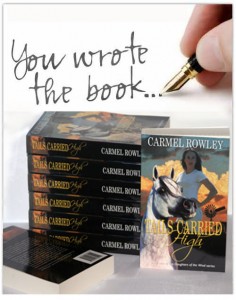Patrice Shaw’s ponderings on the written word.
We all know that an adjective is a ‘describing’ word; the main role being to qualify a noun or noun phrase, giving more information about the object. Today, Patrice explains how to tighten up our writing by using less adjectives.
Adjectives – when less is more …
One common flaw with many of the manuscripts I edit is the tendency to overuse adjectives. Adjectives modify nouns and pronouns and using too many in a sentence reduces their effectiveness.
For example, ‘It was a great, big, old rambling house’. Great and big are superfluous here as rambling would suggest that the house is big anyway.
Usually, two adjectives are enough. By the time readers get to a third, they’ve forgotten what the first one was. Adjective abuse tends to slow the story down and gives an amateurish feel to a piece of writing.
When you see a stream of adjectives in your writing, try cutting one or two out. If the meaning of the sentence hasn’t changed, leave them out. Avoid using lazy adjectives that weaken your story.
For example, adjectives like, very, pretty and lovely are vague – try to be specific so that readers can clearly picture a scene or a character.
Always keep a Thesaurus within reach.
Contact Details: www.facebook.com/patrice.shaw.77?fref=ts
email: pm_shaw@tpg.com.au
Patrice Shaw
PS Editing and Proofreading
M 0405 321 902
H 07 3202 8024


Leave a Reply